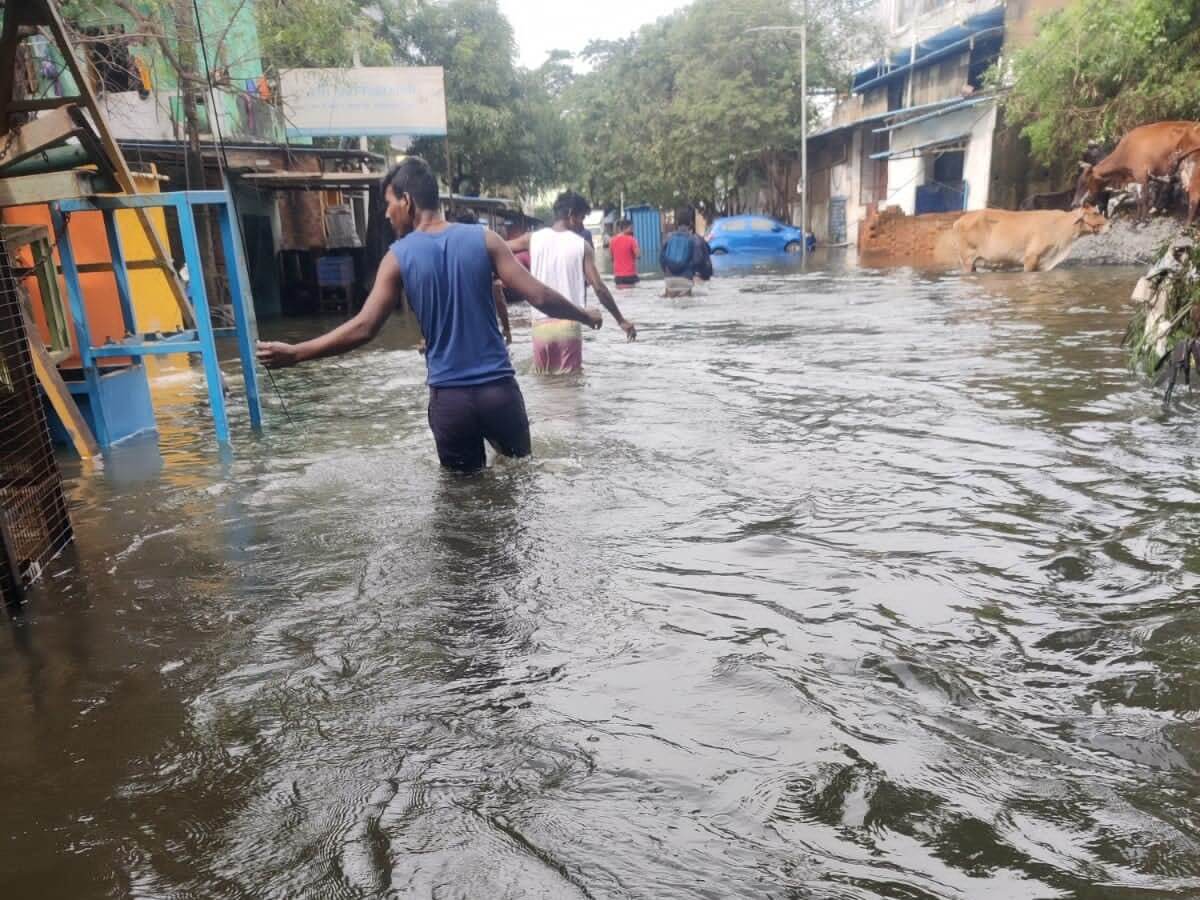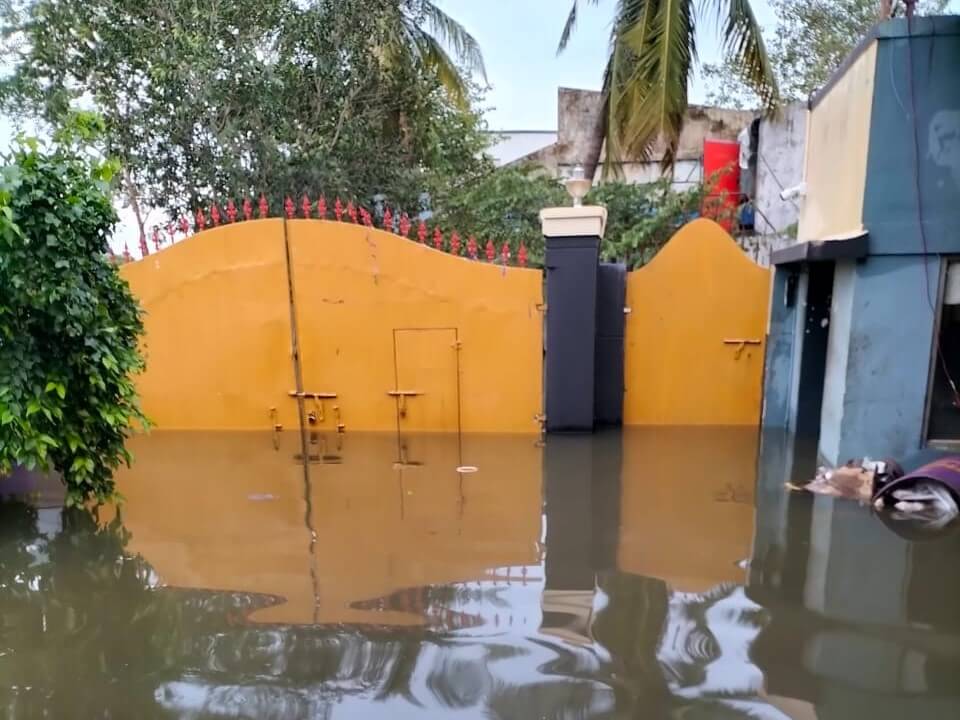
Small Businesses, Large Impacts: Effect of Extreme Rainfall on Chennai’s MSMEs
Srikant Narayanan* is a second-generation owner of a small auto component manufacturing unit in Ambattur Industrial Estate, in Chennai’s automotive manufacturing hub. The estate has about 2000 micro, small and medium enterprises (MSMEs), of which 600-800 are micro units, more than a thousand are small units, and only 10-15 are medium units. Most of his workers travel to Ambattur from other parts of Chennai and from neighboring districts. In December 2023, cyclone Michaung wreaked havoc in Tamil Nadu, forcing him to halt production for eight to ten days.
This was not his first encounter with such devastation. In 2015, Chennai was inundated by floods in which over 10,000 MSMEs lost more than INR 1700 crores due to disruption in production. Over 50,000 workers lost their jobs. But in cyclone Michaung, Chennai’s MSMEs lost more than INR 7000 crores.
Srikant’s story mirrors that of many MSME owners who have lost property and revenue due to such calamities. It underscores the urgent need to make MSMEs more resilient to climate hazards.
In the aftermath of cyclone Michaung, we interviewed workers and owners of ten MSMEs in Chennai that manufacture automotive components to understand how they deal with climate hazards.
Impacts on Workers: Disrupted Commutes and Reduced Productivity

The cyclone-induced flooding disrupted workers’ access to power, water and food. Many workers said that their homes were inundated and uninhabitable for two to three days. Workers lost income because machinery was shut down and production was reduced due to power outages. Some had to forego work days due to health issues, such as dengue and other infections. Many could not reach their workplace due to limited public transport access.
Impacts on Physical Infrastructure: Damage to Machinery and Buildings
Physical infrastructure, including buildings and equipment, was significantly damaged by the cyclone. Anil Srinivasan*, a second-generation owner of an MSME that makes industrial fasteners had learnt from his experience during the 2015 floods, when the roof of his unit had collapsed. Fortunately, the electrical equipment in his unit had been saved as it was covered in tarpaulin. He had suffered damages worth INR 18-20 lakhs, of which only INR 6 lakhs was recovered through insurance. Following this experience, he invested in machines that could be moved around and adjusted for height in the event of waterlogging.
Other MSMEs elevated their shop floor to safeguard their equipment from water seepage or relocated to a less flood-prone location after incurring heavy losses due to structural damage. However, only a few MSMEs in Ambattur are implementing such changes.
Impacts on Business Operations: Delays and Added Expenditures Across the Supply Chain
In Ambattur, a micro unit in a flood-prone area was waterlogged, rusting steel and making much of it unusable as a primary raw material for the automotive industry.
Shiva Shekar*, an MSME owner in Ambattur gave another example of how problems spread through the supply chain. The unit to which he had outsourced processes like heat treatment was also affected by the floods. This delayed his production by two to four days and disrupted his ability to meet customer deadlines.
Additionally, heavy rains and floods delayed the delivery of finished goods, forcing companies to use expensive premium freight, increasing their costs even more.
Another common concern shared by all the MSMEs that were interviewed was the unplanned shutdown of power during heavy rainfall. With a number of sub-stations and transformers located in low-lying areas, power supply was cut for safety reasons until the water receded. MSMEs used diesel generators as backup power, which further increased operational costs.
To mitigate equipment damage and resume operations quickly, some enterprises used motors to pump out excess water. For instance, one enterprise in Ambattur, with its shop floor at low elevation, recalled operating three pumps through the night to continue their work the day after the 2015 floods.

Recommendations to Strengthen Climate Resilience of MSMEs
With extreme rainfall and rising temperatures likely to become more frequent and intense with climate change, there is a pressing need for climate-resilient urban planning, including improved stormwater drainage systems, water body restoration and elevated buildings in industrial estates like Ambattur. Currently, many streets in Ambattur’s industrial area do not have an underground drainage system, with several encroachments in existing canals.
MSMEs need to be sensitized to the potential impacts of climate change on their units and workers, along with possible climate adaptation interventions at enterprise level. Original Equipment Manufacturers (OEMs) can organize these sensitization programs for the MSMEs in their supply chain, with the support of government or private training agencies.
Furthermore, climate finance is critical to adopt resilience measures and cover damages. Grants, subsidies and low-cost loans by government schemes and private banks must incorporate climate impacts into insurance policies and schemes. For example, Small Industries Development Bank of India (SIDBI) has green finance schemes for mitigation and adaptation projects in the MSME sector.
These impacts are not limited to MSMEs but extend through the supply chain. Thus, there is a need for collaborative effort from OEMs, local and state governments, financial institutions and civil society organizations. Together, they must invest in vulnerability assessments, support implementation of interventions to enhance resilience, sensitize and train workers and owners on measures and low-cost technology interventions to mitigate impacts, aid in infrastructure improvement and implementation of climate resilient urban planning, and strengthen access to green finance to support MSMEs in their resilience efforts.
* Names changed to ensure anonymity.
Read more about WRI India’s Resilient, Inclusive and Sustainable Enterprises (RISE) initiative here.
All views expressed by the authors are personal.
Vishwajeet Poojary is a former Senior Program Associate with the Climate Program at WRI India.